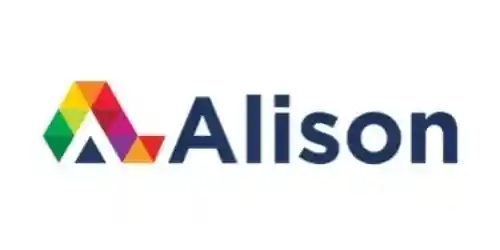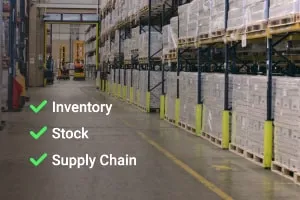
Applied Operations Management - Inventory Models 
Learn the essentials of inventory management and how to optimize your organization's stocks and output with this free online course. Discover inventory models, cost analysis, and the Economic Order Quantity (EOQ) model to ensure accurate recordkeeping and prevent stockouts. Get a comprehesive understanding of this course which is a free course. AZ Class provides this course data for free. Learn more certificate and details here. ▼
ADVERTISEMENT
Course Feature
![]() Cost:
Cost:
Free
![]() Provider:
Provider:
Alison
![]() Certificate:
Certificate:
No Information
![]() Language:
Language:
English
Course Overview
❗The content presented here is sourced directly from Alison platform. For comprehensive course details, including enrollment information, simply click on the 'Go to class' link on our website.
Updated in [October 18th, 2023]
What does this course tell?
(Please note that the following overview content is from the original platform)
This course will first introduce you to inventories and inventory models. You will study materials management and how to store the material for subsequent use. The course will then discuss the two important questions to ask when ordering materials, as well as talk about the classification of inventory models and the three classifications of demand. You will also look into costs, the components of order cost, and the components of backorder or cost of shortage.
The course will then discuss the Economic Order Quantity (EOQ) model. Here, you will learn how to minimize total inventory holding costs and ordering costs. You will study the EOQ model developed by Mr. Pankaj Mane, which includes backordering costs and multiple items. The course will show you how the EOQ model solves the "how much" and "when" aspects of ordering inventory and overviews core assumptions about inventories.
Inventory management is essential to any business that needs to prevent stockouts, manage multiple locations, and ensure accurate recordkeeping. The key to proper inventory control is having a strong understanding of your customers' demand for your products. By taking this free online Inventory Management course and learning the basics of inventory management and its concepts, you will be able to strike a balance between your organization's stocks and output. This is a powerful set of business knowledge.
We considered the value of this course from many aspects, and finally summarized it for you from two aspects: skills and knowledge, and the people who benefit from it:
(Please note that our content is optimized through artificial intelligence tools and carefully reviewed by our editorial staff.)
What skills and knowledge will you acquire during this course?
Introduction to Inventories: Students will gain a comprehensive understanding of inventories and inventory models. They will learn the importance of managing materials and storing them efficiently for future use.
Material Management: The course covers materials management principles, emphasizing the importance of effectively storing materials for subsequent use in various operations.
Ordering Materials: Students will learn the two critical questions to consider when ordering materials, ensuring that they can make informed decisions to meet demand.
Classification of Inventory Models: The course explores the classification of inventory models, providing students with insights into different approaches for inventory management.
Classification of Demand: Students will delve into the three classifications of demand, helping them understand customer requirements and order materials accordingly.
Cost Analysis: The course covers various cost components in inventory management, including order costs and backorder costs or costs of shortage.
Economic Order Quantity (EOQ) Model: Students will learn about the EOQ model, a fundamental concept in inventory management. They will discover how to minimize total inventory holding costs and ordering costs while effectively managing stock levels.
EOQ Model Development: The course introduces the EOQ model developed by Mr. Pankaj Mane, which includes backordering costs and considers multiple items, making it a versatile tool for inventory optimization.
Inventory Management: Students will grasp the importance of inventory management for preventing stockouts, managing multiple locations, and maintaining accurate recordkeeping.
Balancing Stock and Output: By understanding the basics of inventory management and its concepts, students will acquire the skills to strike a balance between an organization's stock levels and production output.
Business Knowledge: The course provides students with valuable business knowledge, allowing them to make informed decisions related to inventory management, demand forecasting, and cost optimization.
Who will benefit from this course?
This course on Applied Operations Management - Inventory Models will benefit individuals and professionals in various fields, including:
1. Supply Chain Managers: Supply chain managers will benefit from this course as it provides a comprehensive understanding of inventory management and its concepts. They will learn how to optimize inventory levels, minimize costs, and ensure accurate recordkeeping, which are crucial for effective supply chain management.
2. Operations Managers: Operations managers will find this course valuable as it covers topics such as materials management, inventory classification, and demand forecasting. They will gain insights into how to efficiently store materials, make informed ordering decisions, and minimize inventory holding and ordering costs.
3. Inventory Analysts: Inventory analysts will benefit from this course as it delves into inventory models, including the Economic Order Quantity (EOQ) model. They will learn how to calculate optimal order quantities, manage backorders, and optimize inventory levels to meet customer demand while minimizing costs.
4. Business Owners: Business owners, especially those in retail or manufacturing industries, will find this course beneficial. It provides them with the knowledge and skills to prevent stockouts, manage multiple locations, and maintain accurate inventory records. This course will help them strike a balance between inventory levels and output, leading to improved operational efficiency and customer satisfaction.
5. Logistics Professionals: Logistics professionals involved in inventory management will find this course useful. It covers essential topics such as inventory control, demand forecasting, and order management. They will learn how to effectively manage inventory across different locations, optimize order quantities, and reduce costs associated with inventory holding and ordering.
Overall, anyone interested in gaining a strong understanding of inventory management principles and techniques will benefit from this course. It provides valuable knowledge and skills applicable to various industries and professions.
Course Syllabus
Introduction to Inventory Models
The module begins by introducing the basics of inventory management and introduces concepts such as deterministic demand and probabilistic demand, type of costs such as cost of item, order cost, and holding or carrying cost.Understanding Eoq Model
Several models are available to help determine how much inventory should be brought in to restock the products or parts, and you will be introduced to inventory models such as the single period inventory model, the multi-period inventory model and the economic order quantity (EOQ) model. These models are explained in detail using worked examples.Course assessment
Course Provider

Provider Alison's Stats at AZClass
Discussion and Reviews
0.0 (Based on 0 reviews)
Explore Similar Online Courses

Intuitive Tarot Card Reading - Accredited Certificate Course

Integrating Environmental Social and Governance (ESG) Factors : Ivy Exec & Wharton School Webinar

Python for Informatics: Exploring Information

Social Network Analysis

Introduction to Systematic Review and Meta-Analysis

The Analytics Edge

DCO042 - Python For Informatics

Causal Diagrams: Draw Your Assumptions Before Your Conclusions

Whole genome sequencing of bacterial genomes - tools and applications

Forklift Operator Training

Warehouse Management: Inventory Stock and Supply Chains


Start your review of Applied Operations Management - Inventory Models